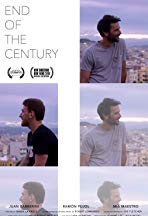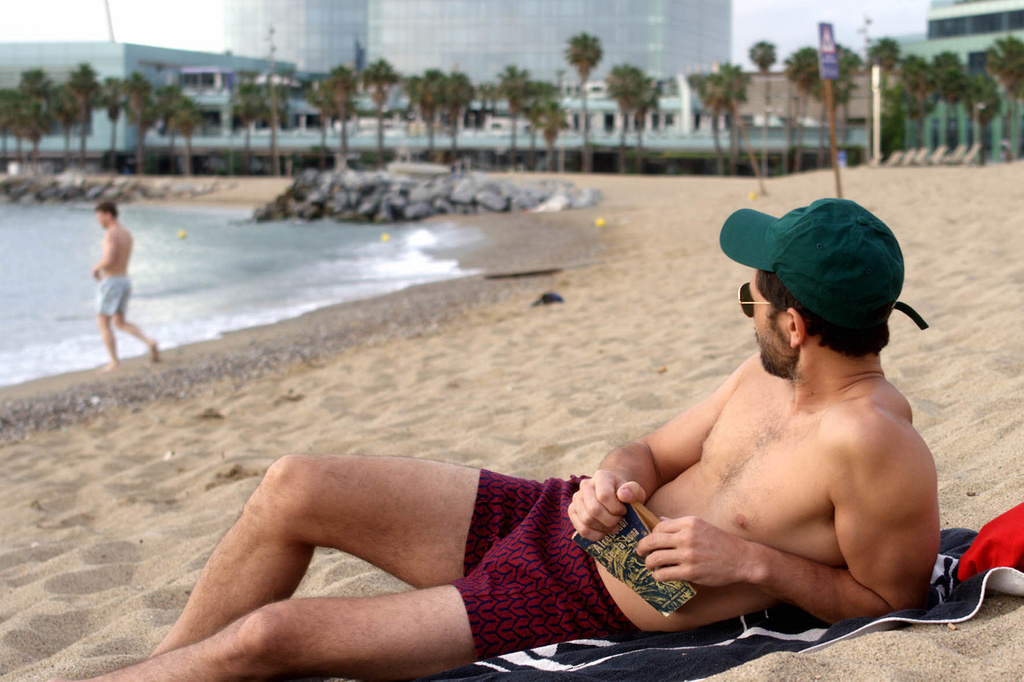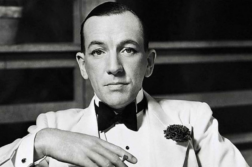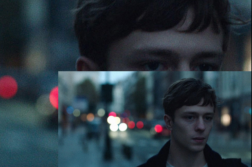THIS YEAR I’ve reviewed half a dozen of the ten or so films that I saw in June at the Provincetown International Film Festival—not officially an LGBT film festival, but hey, it’s P’town, so a fair number G&LR-worthy films were on hand. Here’s the fifth review:
The structure of this film may be puzzling and some of the plot devices implausible, but the charisma between its two central characters is enough to draw the viewer into its insular world. The questions will come later; what fascinates us in the moment is the ongoing dance of these two handsome, fortyish men, starting with a series of near encounters in Barcelona before Ocho finally asks Javi up to his apartment, where they have hot sex (interrupted by a humorous attempt to find a condom). They go on a second date; Ocho remarks that Javi looks familiar; Javi replies that they have in fact met before; and suddenly we’re back in the year 1999, twenty years ago, when the two men met and had a fling in the same Barcelona neighborhood.
The fact that director Lucio Castro has made no attempt to change the men’s appearance between “then” and “now” must have been a deliberate choice—just shaving their beards would have done the trick—though it’s not entirely clear what he has in mind: that history is repeating itself, déjà vu style? that time itself is an illusion? The film does play with perception and reality when it proposes an alternate ending that throws the whole story into question. Still, this superficial detail points to what seems to me a missed opportunity. People really do change over two decades, and the stretch from late adolescence to early middle age has got to be the most interesting period in most people’s lives. There’s a moment when Javi reminds his friend that twenty-year-old Ocho wanted lots of kids, but it’s Javi who ended up with a daughter. We note that today Ocho is the top in sex, while earlier he was the bottom. Other than that, there’s little reflection on how things have turned out or even about their earlier affair. The fact that Ocho had forgotten all about it leads us to wonder whether it really happened at all—a more metaphysical question of the kind that seems to interest this director.







